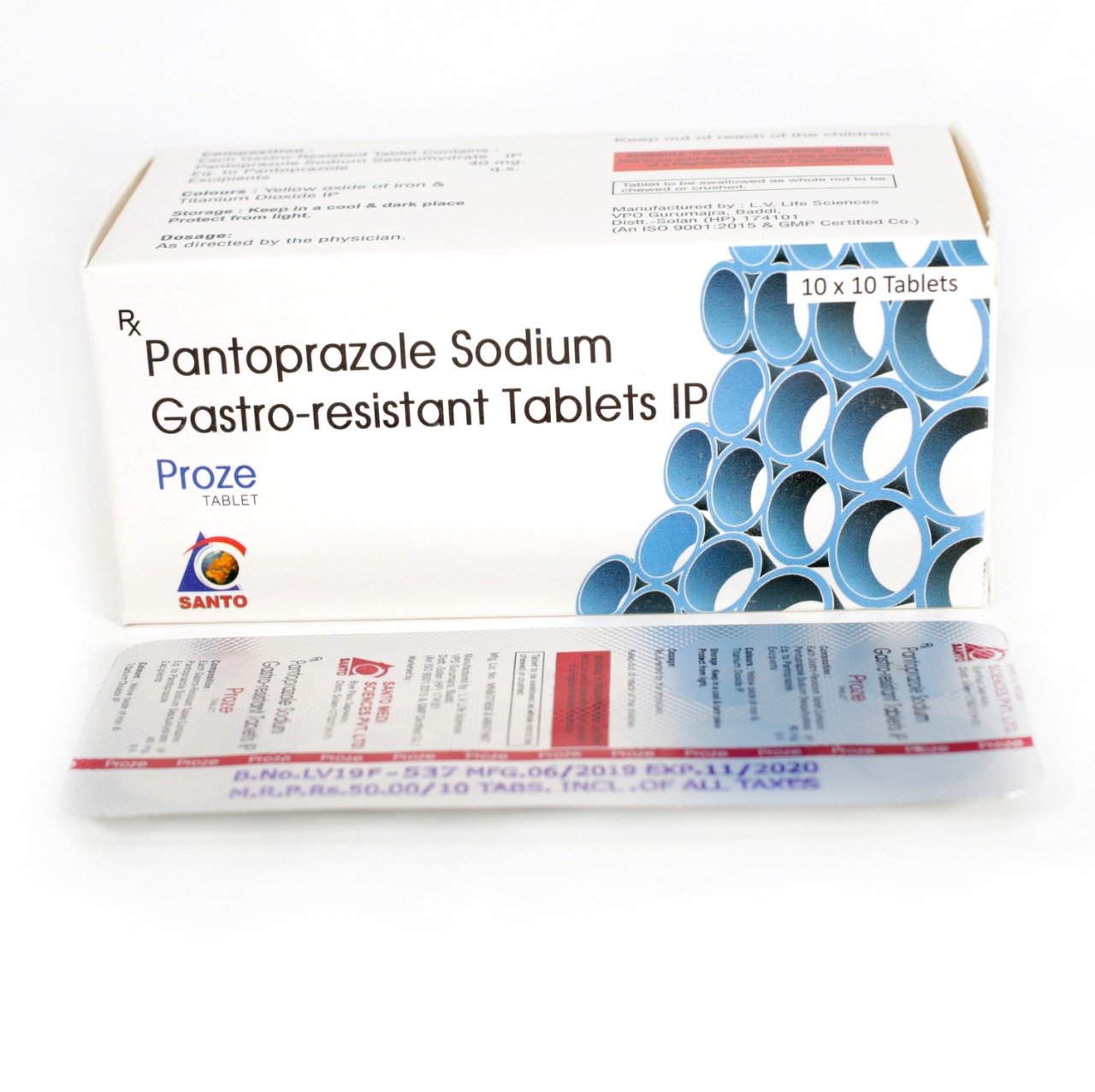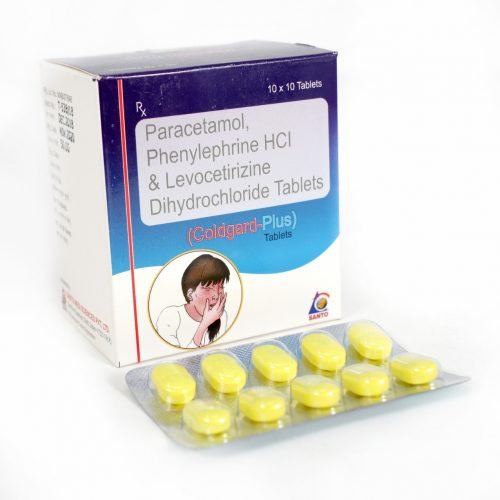- 01792-220191, 09839141955, 06390845955
- SCO No. 2 & 3, Block-B;Office No.-249A; 2nd Floor, Motia Plaza Baddi-173205; Distt. Solan (H.P.)

PROPOD-200
September 19, 2019
PROZE -D
September 19, 2019PROZE
| Brad Name | Proze |
| Composition | Pantaprazole 40 MG Tablets |
Pantoprazole 40 mg
Proze (Pantoprazole) is in a class of drugs called proton pump inhibitors (PPI) which block the production of acid by the stomach. It stop cells in the lining of the stomach from producing too much acid. This can help prevent ulcers from forming or assist the healing process. By decreasing the amount of acid, they can also help to reduce acid reflux related symptoms such as heartburn. It can also be used to treat irritation and ulceration of the stomach caused by non-steroidal anti-inflammatory drugs (NSAIDs). It can also be used as one part of a treatment to get rid of Helicobacter pylori, a bacterium found in the stomach, which can cause ulcers.
Indications
- Gastroesophageal reflux disease
- Erosive esophagitis
- Gastric and duodenal ulcers
- Zollinger-Ellison syndrome
Dosage
Adult : Oral: 40 mg every day for upto 8 weeks; an additional 8 weeks may be used in patients who have not healed after an 8-week course
Contraindications
Hypersensitivity to pantoprazole or any component
Precautions
- Tell the doctor if allergic to pantoprazole, dexlansoprazole (Dexilant), esomeprazole (Nexium), lansoprazole (Prevacid), omeprazole (Prilosec, Zegerid), rabeprazole (AcipHex), any other medications, or any of the ingredients in pantoprazole tablets or powder.
- Tell the doctor what prescription and nonprescription medications, vitamins, nutritional supplements, and herbal products you are taking or plan to take. Be sure to mention any of the following: certain antibiotics, including ampicillin (Principen), anticoagulants (blood thinners) such as warfarin (Coumadin), atazanavir (Reyataz), digoxin (Lanoxin, Lanoxicaps), diuretics (‘water pills’), iron supplements, ketoconazole (Nizoral), methotrexate (Rheumatrex, Trexall), and nelfinavir (Viracept).
- Tell the doctor if you have or have ever had a low level of magnesium in your blood.
- Tell the doctor if you are pregnant, plan to become pregnant, or are breast-feeding. If you become pregnant while taking pantoprazole, call your doctor.
- If you are 50 years of age or older, ask your doctor if it is safe for you to take pantoprazole. The risk that you may develop a severe form of diarrhea caused by bacteria or that you may fracture your wrist, hip, or spine may be higher if you are an older adult.
Side effects
Headache, dizziness, nausea, vomiting, gas, joint pain, blistering or peeling skin, rash. Hives, itching, swelling of the eyes, face, lips, mouth, throat, or tongue, difficulty breathing or swallowing, hoarseness, irregular, fast, or pounding heartbeat, excessive tiredness, dizziness, lightheadedness, muscle spasms, uncontrollable shaking of a part of the body, seizures, severe diarrhea with watery stools, stomach pain, fever
Drug interaction
- Medicines such as ketoconazole, itraconazole and posaconazole (used to treat fungal infections) or erlotinib (used for certain types of cancer) because Pantoprazole may stop these and other medicines from working properly
- Warfarin and phenprocoumon, which affect the thickening, or thinning of the blood. You may need further checks
- Atazanavir (used to treat HIV-infection)






